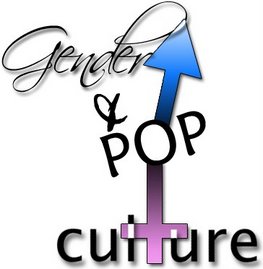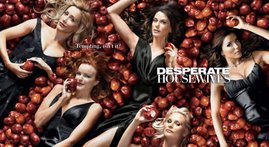My goal is to analyze the concepts of masculinity and femininity as found in popular media and advertising. Specifically, are they concepts that can be linked directly to an analogous sex or gender? What messages do the media send about the normative definitions of masculinity and femininity? What traits are included and omitted when portraying an ideal or non-ideal/pathological masculine and/or feminine subject?
On the show The Girls Next Door¸ there are very obvious definitions of what makes someone “masculine” and what makes someone “feminine.” The two genders are made out to be very different in terms of what is expected of them and what their purpose is.
Both women and men in today’s society are expected to be successful and compete with each other in the business world (Kilbourne, 1999). In “The Girls Next Door,” it is painfully obvious that Hugh Heffner has obtained a tremendous amount of wealth and fame from “Playboy” magazine. Heffner is someone who can afford anything he wants, and therefore has a lot of power. A tremendous amount of people know who he is, and are eager to attend his many parties and events. Heffner’s girlfriends do possess a small amount of fame and power as well in the sense that people recognize them from the television show and want them to do guest appearances. One can argue that gender is analogous when it comes to a thirst for fame, money, and power. These women want to be on the cover of the magazine, they want to be recognized, they want to make appearances in movies, radio shows, television shows, etc. However, there are way more differences between what defines masculinity and femininity.
Men are portrayed as powerful and active throughout the media (Kilbourne, 1999). Hugh Heffner is no exception to this rule. Whenever Heffner enters a room, everyone pays attention. In “The Girls Next Door,” all the staff is there for Heffner. In one episode of “The Girls Next Door,” Holly wants to see the latest edition of the playboy magazine in order to see if she was on the cover with Kendra and Holly. However, she was not allowed to see the magazine until Heffner had seen it first. He is so rich and powerful that he is able to afford the purchase of a diamond necklace for a dog! Another example of his power is illustrated when Heffner converses with Kendra in the episode “Heavy Petting” I noticed that he failed to make eye contact with her when he spoke to her and that she rarely said anything to him. This is possibly due to the fact that women are expected to be silent, especially around powerful men (Kilbourne, 1999).In a way, he speaks to the girls more as a father figure than as a lover. This may be due to the fact that women are encouraged to be delicate and childlike (Kilbourne, 1999). Heffner is more of a father figure since it is he who supports the girls financially, feeds them, buys them their clothes, provides them a home, etc. Another way Heffner is more powerful than the girls is depicted in the first episode of season two. The girls in the house are extremely concerned with looking thin for his party, but one never hears Heffner vocalize a concern about his own personal appearance. This is largely due to the fact that the media has little problem depicting men eating fattening food products (Kilbourne, 1999). Although he never tells the girls to lose weight in the episode, many men feel they have the right to tell their girlfriends to lose weight (Kilbourne, 1999). However, men are entitled to eat whatever they want, while a woman eating a low fat pizza or a salad is considered a “privilege” (Kilbourne, 1999). Hugh Heffner is the epitome of the ideal masculine image.
Subscribe to:
Post Comments (Atom)



No comments:
Post a Comment